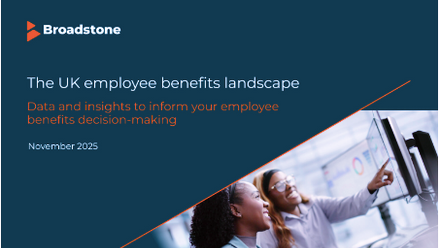Are you ready for claim payments at Olympic speed?

The people in your business are what the crowd and family is to Mo Farah. You see the people you work with every day, often building close knit relationships with those who become more like friends and family than colleagues. This is especially the case with small teams, and small companies.
Businesses often talk about the value of creating a welcoming, collaborative environment to encourage these relationships to develop, in order to boost productivity and generally make it a good place to work. So if a personal catastrophe hits an employee within this environment, how you handle it will have a big impact on your people and your business. (Think of how Farah recovered from his fall).
Group life cover exists to provide a vital financial lifeline to an employee’s family in the event of their death. This is especially the case when a parent dies as families face huge short and long term financial strain without such support.
Getting the money quickly to these families so they can make their mortgage or rent payments, pay for the funeral and deal with immediate household bills is absolutely crucial. It is therefore essential the employer spends time preparing in advance and therefore has everything in place to deal with a claim as soon as it happens.
The crowd are looking at you Mr Employer
As the policyholder, it is the employer’s responsibility to submit a claim and if they are also trustees, they have to perform those duties and pay the beneficiary too. But the claim process is not a routine HR admin task, it is time critical with huge consequences for the family. In the days and weeks after such a catastrophe, the family will have lots of things to worry about and the employer must be ready to act quickly in order to make sure that money isn’t one of them.
Yet we have seen delays in what should be a simple and fast process. For example, claim forms received months after the death and cases where we’ve had to chase employers repeatedly for missing information, but one of the most common causes of delay is the employer not being able to find the trust documents.
We’ve received claims for schemes where employers do not know who the trustees are, cannot locate the trust deed or there is no trustee bank account set up. We have seen this add weeks onto the payment of a claim.
It is therefore important that a group life scheme is maintained in good order and the employer is prepared to act fast so in the event of a claim, insurers can pay the claim and money can reach the family as soon as possible.
Preparation helps and here’s how:
1) Know who your trustees are
Trustees are appointed at the time of establishing the trust and are usually the Principal Employer, directors of the company or similar. A scheme administrator would also be appointed at this time too. If you’ve had your group life scheme for a while, check what trust is in place and make sure the trustees and scheme administrator are still appropriate and if not, appoint new ones. It’s also sensible to keep an up-to-date record of trustees.
2) Know your PSTR
The scheme administrator is the person who needs to register the scheme with HMRC. At time of registration, they will be given a Pension Scheme Tax Reference (PSTR) which insurers will need, so keep this safe.
3) Look after your trust deed
The trust deed sets out the scheme rules which will detail who can be a beneficiary and set out who can appoint and remove a trustee so it is important to know where your trust deed is.
4) Check to see if you have a bank account set-up
A trustee bank account is usually needed to receive benefits and pay beneficiaries. Many companies with long standing schemes may already have one, but new, smaller companies may not. In some circumstances, insurers can pay the sponsoring company or the beneficiary directly on the trustee’s instruction, so an account is not needed. However not all insurers do this and you should check beforehand.
5) Encourage your staff to complete a nomination of beneficiary form
Although it’s up to employees to complete one, reminding them is helpful. Having a completed and up to date form speeds up the process significantly.
6) Take the pressure off with a Master Trust
It’s possible to avoid most of these issues by using the insurer’s Master Trust. The administration of the trust is taken care of, and more importantly, a set of trustees will manage payments to beneficiaries, so you don’t need to worry about points 1-4 above.
As a result they are becoming increasingly popular, and currently 60% of employers insuring with Ellipse use ours. You can switch to a Master Trust at any time too.
Finally, whether you’re using your own trust or opting into a Master Trust, it’s important to remember that this whole process exists to get crucial financial support to the family as quickly as possible. Treat it with the highest priority. Make sure your HR team know what to do and when, and appoint a senior person to deal with it.
Keeping on top of your group life arrangements and dusting off your trust from time to time, can make a big difference in how quickly money is paid to a bereaved family, relieving their financial stress in what will already be a difficult time.
This article was provided by Ellipse.






